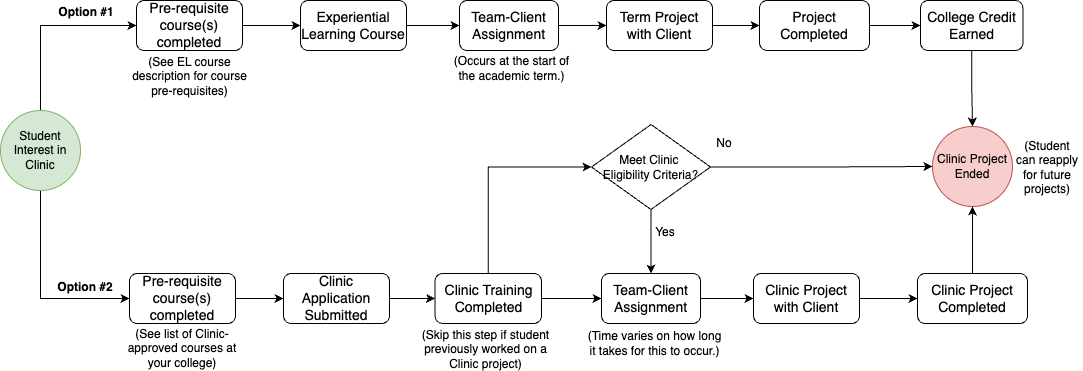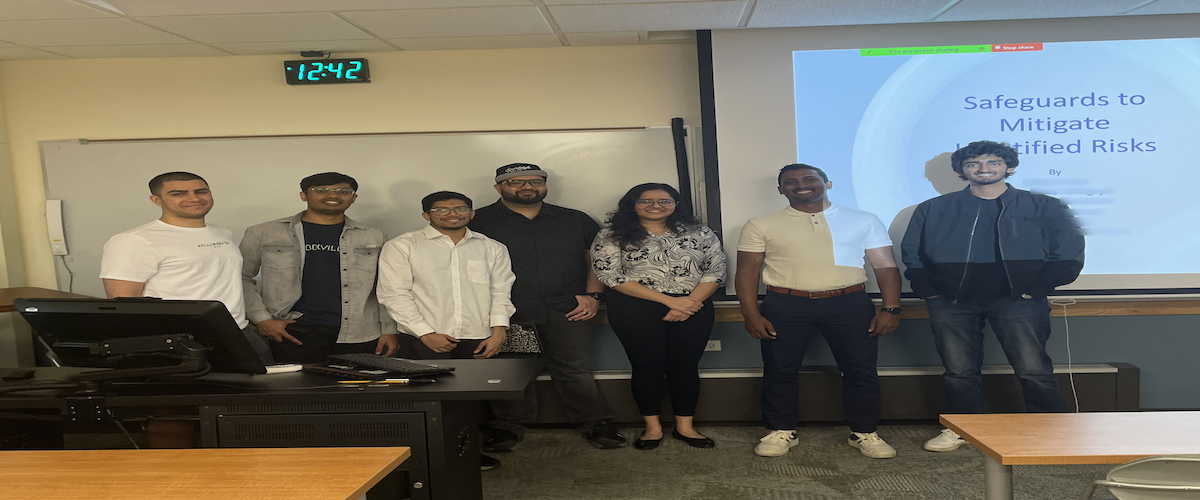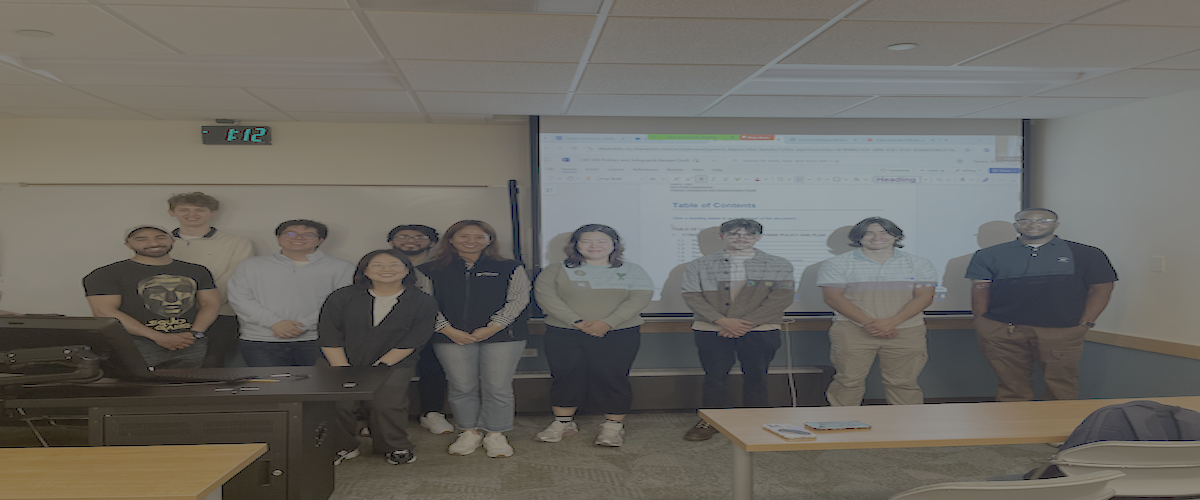Previous Next
Experiential Learning in Cybersecurity
The Clinic is focused on experiential learning opportunities for DePaul students studying cybersecurity-related subjects. That is, students work on real-world projects for a client organization. The clinic provides a means for students to further develop their professional skills, and in doing so, become better prepared for the workforce.
The DePaul Cybersecurity Clinic is special in that it is interdisciplinary, bringing together students from three different colleges: the School of Computing, the College of Business, and the College of Law. This Clinic feature is important, because it mimics the cybersecurity workforce in medium-to-large organizations where cybersecurity involves technnologists, policy-makers, internal auditors, risk managers, data analysts – each contributing their particular expertise toward a holistic cybersecurity program.
The core service the Clinic offers is a security vulnerability assessment that a student team performs using industry standards as guidance, conducting staff interviews, and performing a walkthrough observation at the client site. Depending on the project, technical cybersecurity students may also perform targeted vulnerability scans on a client’s network or analyze system access logs to identify access control vulnerabilities ONLY at a client’s explicit, written request for such services. A project may also include security policy reviews, security program development, or compliance assessment – depending upon the client’s security needs and project requests. The Clinic may serve multiple clients on multiple projects requests at a given point in time. Therefore, student projects in the Clinic will vary in scope, depending on the services requested by a given client, as well as the pool of available students at a given time.
Clinic projects are student-led under the guidance of an instructor or coach. All students working on Clinic projects are expected to make an unwavering commitment to professionalism and project completion. Professionalism includes, but is not limited to:
a strong work ethic, integrity, reliability, and trustworthiness
effective communication with team members, with the client, and with the Clinic instructor/coach
asking for help from a Clinic coach or mentor when needed
effective vulnerability assessment based on guidance from the Clinic instructor/coach; industry standards; proactive research as needed; and team input
effective cybersecurity recommendations to the client, based on findings in the vulnerability assessment; industry standards; team consensus; and Clinic instructor/coach input
quality artifacts (e.g., written report; written policy; written training and instructions; etc.) provided to clients
Student Participation in the Cybersecurity Clinic
Students participate in Clinic projects by either taking an approved experiential learning course or volunteering. Student volunteers must complete Clinic training on working with clients on cybersecurity projects. These two options for participation are illustrated in the following flowchart:

Each college manages its curricula and has its unique course offerings, academic advising, and in the case of the Law college, academic calendar. Therefore, each college identifies the courses its students may take to participate in Clinic projects for college credit. Please learn more about your college’s offerings for Clinic participation. We then invite you to complete an application to join the Clinic as applicable.
Complete the student application to request participation in a Clinic project.

School of Computing
SoC offers BS and MS degrees in cybersecurity, and an MS-IS degree with a domain in IT gov. & legal responsibility.
Learn more ...
College of Business
DCOB offers a BS in accountancy with studies in internal audit and MS studies in audit & risk management.
Learn more ...
College of Law
In addition to a JD degree, the College of Law offers a certificate program in online privacy and cybersecurity law.
Learn more ...


